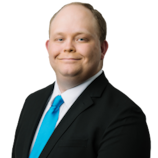The anti-aging market is a multi-billion-dollar industry.
>> Former Clark County Auditor’s Office employee sentenced to prison
We’ve all seen the ads selling the idea that looking and feeling youthful is better.
But it’s not only about the superficial changes we face when we age.
Getting older also means a higher chance of health complications.
Members of Congress heard from scientists Thursday about efforts to extend the amount of time a person lives with good health, which can also translate into slowing down the aging process.
>>Serious injuries reported after motorcycle crash in Greene County
Testimony before the House Science, Space, and Technology Subcommittee on Investigations and Oversight said there is now testing being down on aging interventions on humans through small FDA approved clinical trials.
The goal is to develop aging therapeutics to lower the risk of diseases and health conditions associated with old age.
“These advances will not generate a fountain of youth in the colloquial sense but it will fundamentally change what it means to grow old,” said Dr. Jay Olshansky, Professor of Public Health at the University of Illinois at Chicago. “We will remain younger longer. Retain our youthful vigor for an extended period of time and compress everything we don’t like about aging into a shorter duration of time at the end of life.”
We asked Rich Aertz, age 73, if he has ever wanted to slow down the aging process.
“Yes,” Aertz replied. “Because I had a heart attack and a brain attack.”
Scientists called on Congress to invest more funding in this field of science.
>> Volunteers to plant trees for families impacted by Memorial Day Tornadoes
“The federal government could facilitate geroscience research by providing federal funding dedicated to supporting geroscience research across many disciplines, and support for training physician scientists knowledgeable about clinical trials in geriatric patients,” said Dr. Laura Niedernhofer, Director of the Institute on the Biology of Aging and Metabolism and Medical Discovery Team on the Biology of Aging at the University of Minnesota.
©2022 Cox Media Group






